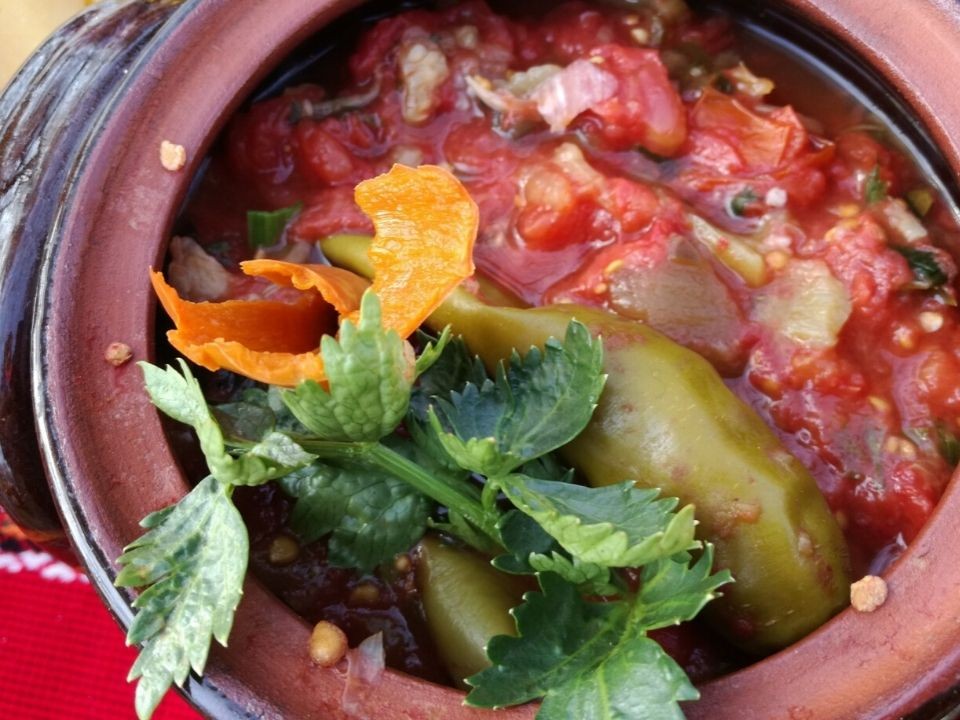 4
4
Alternative tourism is a set of sustainable practices aimed at satisfying the individual interests and needs of the tourist, as well as at preserving local nature and culture. The emphasis is on the contact with the preserved natural environment, authentic atmosphere and cuisine and preserved traditions.
 “Alternative tourism is helpful in a situation of pandemic, because it involves small groups of people and does not envisage large gatherings of people. Transport in most cases is individual. Alternative tourism operators are flexible and can continue to offer cultural tours, rural and eco tourism, diving, ski touring and horse riding tours in these unusual conditions. We offer gastronomic, wine, pilgrimage and city tours, as well as travels focused on festivals of local foods and traditions”, the founder of the new platform for slow tourism Ekaterina Terzieva told Radio Bulgaria.
“Alternative tourism is helpful in a situation of pandemic, because it involves small groups of people and does not envisage large gatherings of people. Transport in most cases is individual. Alternative tourism operators are flexible and can continue to offer cultural tours, rural and eco tourism, diving, ski touring and horse riding tours in these unusual conditions. We offer gastronomic, wine, pilgrimage and city tours, as well as travels focused on festivals of local foods and traditions”, the founder of the new platform for slow tourism Ekaterina Terzieva told Radio Bulgaria.
Changes are likely to occur not only in the tourists’ adjustments, but also in transport and the overall organization of the hospitality industry. Much more attention will be paid to hygiene and the products in this industry will take into account the new conditions for physical distancing.
Rail transport is also an interesting form of alternative tourism. Bulgaria is an attractive destination for such type of travel for Austrian, English, German and Serbian tourists, Ekaterina Terzieva says and adds:
“It can be more actively developed thanks to Septemvri-Dobrinishte narrow-gauge line for instance, which links the Upper Thracian Plain with Rila, Pirin and the Rhodope mountains. It is the only operating 760 mm narrow-gauge line in Bulgaria. Avramovo station, situated at 1267 meters above sea level, is the highest train station in the Balkans. In February this year, Septemvri-Dobrinishte narrow-gauge route was ranked among the top 10 journeys in Europe by the prestigious British edition of the Guardian.
 The international Slow Food movement was established in the 1980’s.At the same time, the idea emerges that one way to combat the dynamic and stressful lifestyle is through food. Such type of tours is an alternative to recreations of the type “sea holidays in the summer and mountain holidays in the winter”. They give you the opportunity to relax and enjoy life. Slow travels are counterpoint to the busy life in the large cities.”
The international Slow Food movement was established in the 1980’s.At the same time, the idea emerges that one way to combat the dynamic and stressful lifestyle is through food. Such type of tours is an alternative to recreations of the type “sea holidays in the summer and mountain holidays in the winter”. They give you the opportunity to relax and enjoy life. Slow travels are counterpoint to the busy life in the large cities.”
 “The offered gastronomic trips are an opportunity to support the Bulgarian producers during the difficult economic situation by shortening the chain between them and consumers. The local communities and their culture, as well as Bulgaria’s natural resources can be presented through food and the people who produce it. Our tours make the trips back to the village an experience, while searching for the local identity and roots. Good food is of high-quality, tasty and healthy. Clean food is a food produced in an environmentally-friendly way and fair food is food offered at prices that are both affordable for consumers and fair to producers.”
“The offered gastronomic trips are an opportunity to support the Bulgarian producers during the difficult economic situation by shortening the chain between them and consumers. The local communities and their culture, as well as Bulgaria’s natural resources can be presented through food and the people who produce it. Our tours make the trips back to the village an experience, while searching for the local identity and roots. Good food is of high-quality, tasty and healthy. Clean food is a food produced in an environmentally-friendly way and fair food is food offered at prices that are both affordable for consumers and fair to producers.”
 There is a growing tendency for increased interest in local tourism, Ekaterina Terzieva underlines:
There is a growing tendency for increased interest in local tourism, Ekaterina Terzieva underlines:
“Now is the time to use the opportunities for tourism offered in this country, because Bulgaria is rich in mineral springs and herbs ( Bulgaria is the second biggest producer of herbs after the Himalayas). We have wonderful seacoast and different type of mountains- Alpine-type mountains which are suitable for extreme sports, as well as mountains like the Rhodopes and the mystical Strandja Mountain which offer knowledge connected with ancient Thracian sanctuaries. I hope that the coronavirus pandemic will give Bulgaria the chance to show the local and foreign guests its opportunities for tourism.”
A wide range of people aged between 25 and 65 show interest in such type of tours, a survey commissioned by the founders of the slow tours platform shows. Ekaterina Terzieva also describes them as well-educated people, patriots, or merely people who are fed up with the standard tourist product and are eager to learn something new and different.
English version: Kostadin Atanasov
Photos: courtesy of Ekaterina Terzieva, archive, slowtours.bg
A spectacular “amusement park” is open to divers 18 metres below the surface of the sea close to St. Anastasia island – an Orthodox chapel rises and opposite the church – a Soviet Chaika car with a chrome grill is parked. Right next to it there is a..
If you think that Northeast Bulgaria is only fertile granaries and plains, it’s time to take a look at the vineyards that stretch across thousands of acres in the region. Here, wine is part of people’s everyday life and culture. The data is impressive –..
Burgas is being promoted as an accessible and appealing destination for Turkish tourists, marking a new step in efforts to attract more visitors from Bulgaria’s southern neighbor to the coastal city and its surroundings, the municipal administration..

+359 2 9336 661
